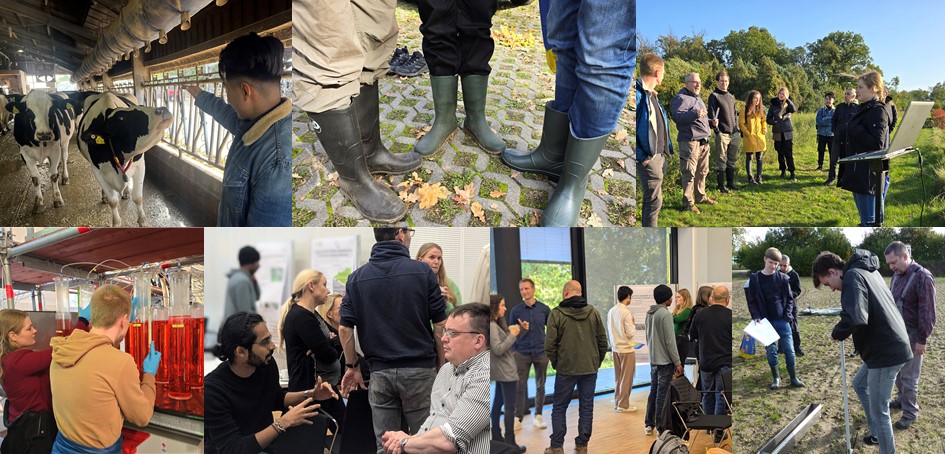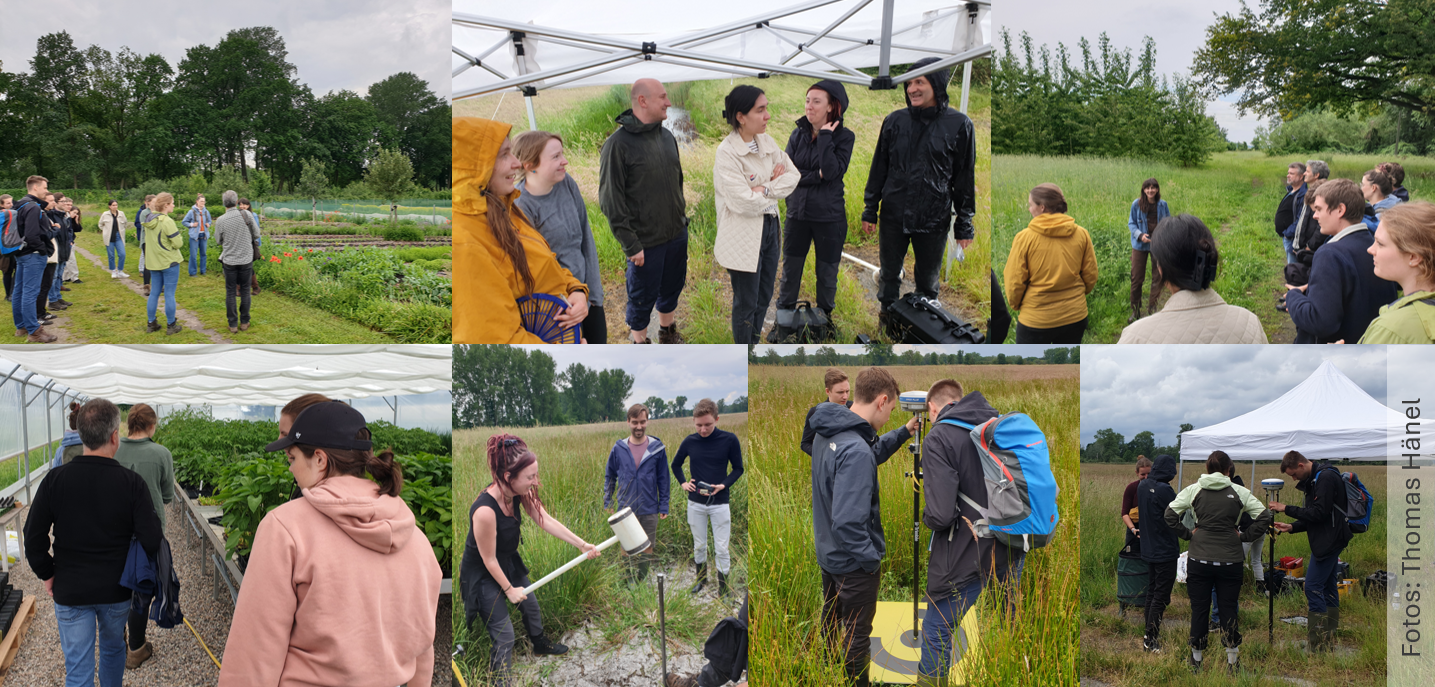Main content
Top content
October 16-18, 2024
A meeting with many impressions: “Rubber Boot Camp” at the ATB

The internal meeting of the ATB under the motto “Rubber Boot Camp” offered the doctoral students of the Joint Lab the opportunity to gain practical research insights and get to know the experimental sites. Exciting sessions for scientific and informal exchange took place, which promoted networking. A highlight was the visit to Werder Island in beautiful weather. The participants appreciated the opportunity to share ideas and experiences. The next meeting is already planned for March.
September 2-3, 2024
Joint Lab Members Host the 21st Expert Discussion on Sensor Networks in Osnabrück
On September 2 - 3, the expert discussion on sensor networks took place in Osnabrück, organized by Joint Lab members Thomas Hänel and Nils Aschenbruck. Organized for the 21st time, it is one of the most traditional events of the section “Communication and Distributed Systems” (KuVS) of the German Informatics Society.
Thilo Steckel from CLAAS gave a keynote speech on networked sensors in agriculture, while Olaf Landsiedel spoke about the “Artificial Intelligence of Things”. There were also 12 presentations, mainly by doctoral students from various research groups in the field of sensor networks, including Lennart Kaiser from the Joint Lab.
June 18, 2024
Focus Workshop “Digital twin as a tool for agriculture"

Where is the potential for digital twins in agriculture? Where can they be used and what functions do they perform to simplify agricultural processes and provide precise digital support?
On June 18, the Agrotech Valley Forum organized a focus workshop to discuss and evaluate the application possibilities and functions of digital twins in agriculture. Both companies and scientific institutions were invited to this event. The Osnabrück University of Applied Sciences and the Joint Lab KI & DS provided a solid foundation with scientific presentations that offered an excellent basis for discussion. You can find the program of the event here.
The participating companies presented their ideas and requirements regarding the practical use of digital twins in business and specifically in agriculture. Along the key technologies, areas of application, and challenges of this concept in agriculture, joint areas for cooperation were subsequently defined. This collaborative work significantly contributed to expanding the knowledge base and networking in the area of digital twins for agriculture in the Osnabrück region. Additionally, working groups were formed to focus on the next concrete steps to create a solid foundation for future research initiatives and practical applications in the agricultural sector.
May 28-30, 2024
Excursion study project - The Joint Lab also brings Osnabrück University and ATB Potsdam closer together in teaching

A group of 13 students and lecturers from Osnabrück University went on a three-day excursion to the ATB in Potsdam at the end of May. The excursion is part of the study project in the Master's degree course in Geoinformatics. Together with researchers from ATB Potsdam and Osnabrück University, the students visited alternative agricultural systems such as agroforestry systems, short rotation plantations and paludicultures. They were then able to collect measurement data on the areas, which will be analyzed in the further course of the study project. A particular focus was on flights with drones equipped with various sensors such as simple cameras, multispectral cameras or laser scanners.
April 29-30, 2024
„Being a joint lab“: practicing cooperation, exploiting synergies

Six months after the official kick-off event, the participants in the Joint Lab KI & DS came together for a retreat at the Coppenrath Innovation Centre in Osnabrück on 29 and 30 April 2024.
Under the motto "Being a joint lab, how can we benefit most from it? For all of us: the doctorate, the collaboration, and best scientific results", the participants used the two days to reflect intensively on the collaboration, exchange ideas and plan new activities. The framework for this exchange was provided by the Open Space Conference method, which gives the necessary freedom for creative thought processes. Away from the programme, the retreat also offered plenty of opportunity for informal discussions during the breaks.
The doctoral students and their supervisors would like to make the most of the opportunity and live out the cooperation at all levels with regard to the individual projects, but also with regard to the Joint Lab as an overall project. The aim is to identify and utilise further synergies between the cooperation partners.
The next retreat will take place in autumn at the ATB in Potsdam.
February 27-28, 2024
The Joint Lab KI & DS presents itself at the GIL conference

Meeting global challenges with artificial intelligence is at the cutting edge. - It was no coincidence that the motto of this year's GIL conference was: "Promoting biodiversity through digital agriculture: What contribution can AI and co. make?". In keeping with the theme, the Research Training Group of the Joint Lab KI & DS was able to present itself in its own parallel poster session at the University of Hohenheim on 27 and 28 February 2024.
How can deep learning help to record biodiversity in agroforestry systems? Will soil maps ensure that agricultural practices can be adapted on a small scale and in line with demand in the future? The doctoral and postdoctoral researchers presented these and other questions to interested visitors on a total of 14 posters in the University of Hohenheim's Katharinasaal, which was made available especially for this purpose during the GIL conference.
The joint participation of the Joint Lab KI & DS at the event can certainly be described as the first opportunity to present the cooperation to experts, as the project groups and the research programme were presented to the public for the first time on this scale. The event was also a good opportunity for the young scientists to gain practice in creating scientific posters and to reflect on and sharpen their projects.


